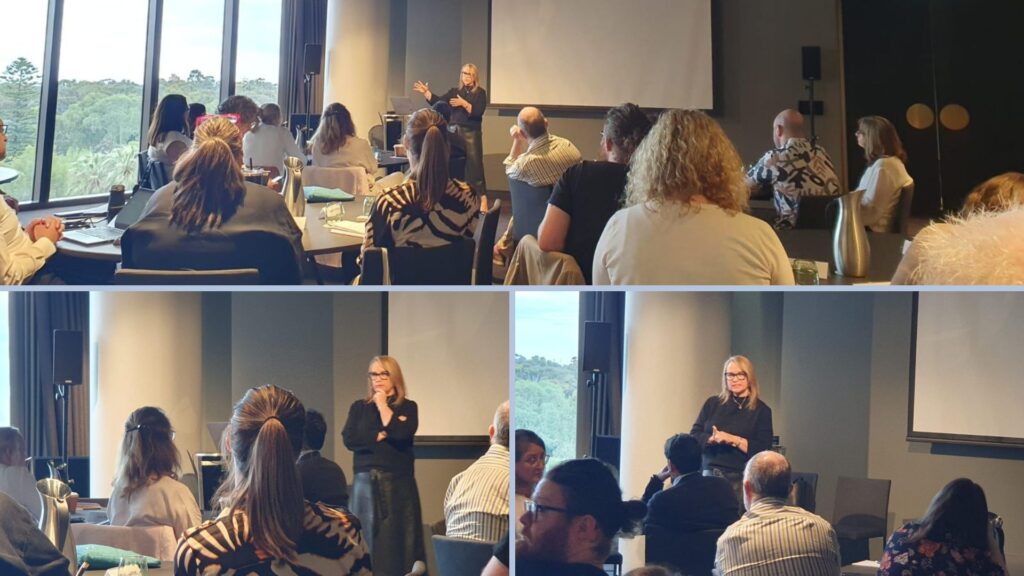From Chance to Choice
31 Oct 2024
A Roadmap to Purposeful Career Progression for Aspiring Leaders
Earlier this month, I had the pleasure of presenting to the newest cohort of graduates from SA Health’s Senior Executive Leadership Program. The aim of the presentation was to spark thought and discussion on intentional career progression, making purposeful choices and actively planning toward one’s career goals. Many participants shared that, up until now, their journeys had been more coincidental than strategically planned.
In today’s fast-paced professional landscape, many find themselves navigating their careers reactively, allowing chance and coincidence to shape their paths. However, a growing number of professionals, especially those aspiring to senior leadership roles, are seeking a more intentional, strategic approach to career progression. Purposeful career advancement requires not only setting clear goals but also aligning with the broader organisational landscape and developing the critical skills needed to thrive in key leadership roles.
Here’s a roadmap to help you move from a coincidental career journey to a deliberate, purpose-driven leadership trajectory:
- Define Your Vision and Leadership Brand
Start by crafting a clear vision of your future. Where do you see yourself in five, ten, or even fifteen years? For those aspiring to senior leadership, this involves not only pinpointing desired roles but also defining your leadership brand—the unique qualities and values you bring. How do you want to be perceived within your industry and organization? Having a strong, defined leadership identity can differentiate you and anchor your decisions, guiding you toward roles that align with your strengths and goals.
- Set Strategic Goals: Short and Long-term
To make steady progress, break down your vision into actionable short and long-term goals. Establish what you need to achieve over the next year, three years, and five years. For aspiring senior leaders, these milestones should include experiences and achievements that build credibility and readiness for greater responsibility, like overseeing major projects, leading cross-functional teams, or building expertise in emerging areas.
- Develop Financial Acumen and Business Strategy Alignment
Senior leaders are expected to understand the organisation’s financial health and strategy. Strengthen your skills in budgeting, forecasting, and financial analysis, as well as in interpreting and communicating complex financial data. Take time to understand your organisation’s strategic goals and priorities, identifying ways to add value, whether through driving efficiencies, fostering innovation, or enhancing customer satisfaction. Aligning your goals with the company’s vision demonstrates your commitment and prepares you to make data-driven, strategic decisions.
- Identify and Bridge Skill Gaps
An important step toward purposeful advancement is recognizing and addressing skill gaps. Determine the skills, knowledge, and experience needed to reach your goals, especially those essential for senior roles, like decision-making under pressure, managing diverse teams, and implementing change. Invest in learning and development, whether through formal education, certifications, or practical experience on challenging projects.
- Build Political Savvy and Strategic Networks
In any organisation, senior leadership often involves navigating complex interpersonal dynamics. Developing political savvy—understanding informal networks, organisational culture, and key influencers—can be crucial to driving initiatives effectively. At the same time, focus on building a broad, strategic network within and beyond your immediate field. Senior leaders benefit from relationships across sectors and functions, providing fresh perspectives, insights into trends, and support when making complex decisions.
- Cultivate Resilience and Adaptability
With higher responsibility comes increased pressure and a need for resilience. Senior leaders must handle setbacks constructively and remain adaptable to change. Cultivating these qualities will help you manage stress and inspire the same adaptability and perseverance in your team. Regularly reflecting on challenges and your response to them can strengthen resilience, preparing you for the unpredictable demands of senior roles.
- Prioritize Developing Others
Senior leaders play a key role in nurturing future talent. Invest time in coaching, mentoring, and providing growth opportunities for others. This not only strengthens your team but also builds your reputation as a leader who supports and inspires others’ success. Purposeful leaders recognize that their impact extends beyond individual achievements to the broader development of the people they lead
- Communicate Effectively and Strategically
Clear, compelling communication is a cornerstone of effective leadership. Senior leaders must convey vision, strategy, and complex information in ways that resonate with diverse audiences. Practice adapting your style to suit different contexts—whether presenting to executives, rallying a team, or negotiating with stakeholders. Strengthening these communication skills enables you to inspire others, gain buy-in, and steer conversations productively.
- Seek Out High-Impact Assignments
To prepare for senior roles, seek assignments that push you beyond your comfort zone, building the experience and insight needed for larger responsibilities. High-impact projects, like leading a new initiative or managing cross-functional teams, will broaden your expertise and demonstrate your readiness for advanced roles.
- Continuously Reflect, Learn & Adapt
Regularly evaluate your progress, reflect on the challenges you encounter, and adjust your goals and actions accordingly. Staying agile allows you to adapt to changing circumstances and ensure your career trajectory remains aligned with both your evolving interests and the shifting expectations of leadership. A major expectation is that leaders will not only demonstrate EQ & IQ but also AQ, adaptative leadership, to navigate complexity and uncertainty. Things like our executive learning set program have stood the test of time because they enable leaders to practice and hone their adaptive capability.
My final piece of advice was to actively engage and network with senior recruiters who specialize in your area of expertise. Allow us to get to know you and understand your capabilities. If you haven’t previously secured a role through a recruitment firm, we can guide you on presenting your best self at every stage—from initial engagement to application and interview. I sincerely hope, either I or my team can support you in the future.
Lynette Taylor
Executive Director, Search & Recruitment
HardyGroup Australia & New Zealand


